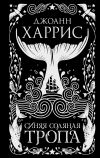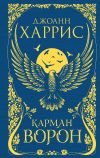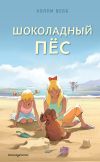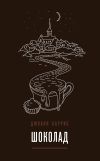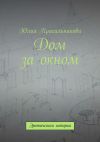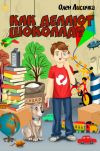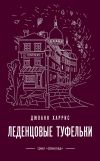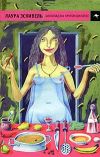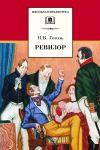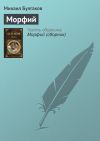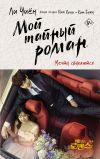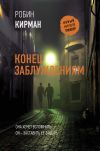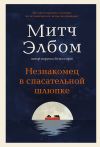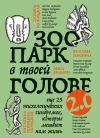Текст книги "Шоколад / Chocolat"
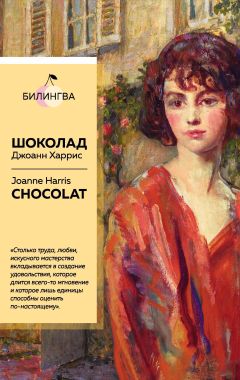
Автор книги: Джоанн Харрис
Жанр: Современная зарубежная литература, Современная проза
Возрастные ограничения: +16
сообщить о неприемлемом содержимом
Текущая страница: 10 (всего у книги 38 страниц) [доступный отрывок для чтения: 12 страниц]
20
Tuesday, March 4
The first green of the spring corn gives the land a mellower look than you and I are used to. At a distance it seems lush – a few early drones stitch the air above its swaying, giving the fields a somnolent appearance. But we know that in two months’ time all this will be burnt to stubble by the sun, the earth bared and cracked to a red glaze through which even the thistles are reluctant to grow. A hot wind scours what is left of the country, bringing with it drought, and in its wake, a stinking stillness which breeds disease. I remember the summer of ‘75, mon pere, the dead heat and the hot white sky. We had plague after plague that summer. First the river gypsies, crawling up what was left of the river in their filthy floating hovels, staying stranded in Les Marauds on the baking mudflats. Then the sickness which struck first their animals and then our own; a kind of madness, a rolling of the eyes, feeble jerking of the legs, bloating of the body though the animals refused to take water, then sweating, shivering and death amongst a heaving of purple-black flies; oh God, the air was ripe with them, ripe and sweet like the juice of a foul fruit. Do you remember? So hot that the desperate wild animals came off the dried marais to the water. Foxes, polecats, weasels, dogs. Many of them rabid, flushed from their habitat by hunger and the drought. We would shoot them as they stumbled onto the river banks, shoot them or kill them with stones. The children stoned the gypsies too, but they were as trapped and desperate as their animals and they kept coming back. The air was blue with flies and the stench of their burning as they tried to halt the disease. Horses succumbed first, then cows, oxen, goats, dogs. We kept them at bay, refusing to sell goods or water, refusing medicine. Stranded on the flats of the dwindling Tannes, they drank bottled beer and river water. I remember watching them from Les Marauds, the silent slouching figures over their campfires at night, hearing the sobbing of someone – a woman or a child, I think – across the dark water.
Some people, weaklings – Narcisse amongst them – began to talk about charity. About pity. But you stayed strong. You knew what to do.
At Mass you read out the names of those who refused to co-operate. Muscat – old Muscat, Paul’s father – barred them from the cafe until they saw reason. Fights broke out at night between the gypsies and the villagers. The church was desecrated. But you stood fast.
One day we saw them trying to hoist their boats across the flats to the open river. The mud was still soft and they slid thigh-deep in places, scrabbling for purchase against the slimy stones. Some pulled, harnessed to their barques by ropes, others pushed from behind. Seeing us watching, some cursed us in their harsh, hoarse voices. But it was another two weeks before they left at last, leaving their wrecked boats behind them. A fire, you said, mon pere, a fire left untended by the drunkard and his slattern who owned that boat, the flames spreading in the dry electric air until the river was dancing with it. An accident.
Some people talked; some always do. Said you had encouraged it with your sermons; nodded wisely at old Muscat and his young son, so nicely placed to see and hear, but who, on that night, had seen and heard nothing. Mostly, though, there was relief. And when the winter rain came and the Tannes swelled once more, even the hulks were covered over.
I went round there again this morning, Pere. The place haunts me. Barely different to the way it was twenty years ago, there is a sly stillness to the place, an air of anticipation. Curtains twitch at grimy windows as I walk by. I seem to hear a low, continuous laughter coming at me across the quiet spaces. Will I be strong enough, pere? In spite of all my good intentions, will I fail?
Three weeks. Already I have spent three weeks in the wilderness. I should be purged of uncertainties and weaknesses. But the fear remains. I dreamed of her last night. Oh, not a voluptuous dream, but one of incomprehensible menace. It is the sense of disorder which she brings, pere, which so unnerves me. That wildness.
Joline Drou tells me the daughter is as bad. Running wild in Les Marauds, talk of ritual and superstition. Joline tells me the child has never attended church, never learnt to pray. She talks to her of Easter and the Resurrection; the child gabbles a farrago of pagan nonsense in return. And this festival; there is one of her posters in every shop window. The children are crazed with excitement.
“Leave them alone, pere, you’re only young once;” says Georges Clairmont indulgently.
His wife looks at me archly from beneath her plucked eyebrows.
“Well; I don’t see what actual harm it could do,” she says simperingly. The truth is, I suspect, that their son has shown an interest. “And anything which reinforces the Easter message?”
I do not attempt to make them understand. To rail against a children’s celebration is to court ridicule. Already Narcisse has been heard to refer to my brigade anti-chocolat, amidst disloyal sniggering. But it rankles. That she should use the Church’s celebration to undermine the Church – to undermine me. Already I have jeopardized my dignity. I dare not go further than this. And with every day her influence spreads.
Part of it is the shop itself. Half-cafe, half-confiserie, it projects an air of cosiness, of confidences. Children love the chocolate shapes at pocket money prices. Adults enjoy the atmosphere of subtle naughtiness, of secrets whispered, grievances aired. Several families have begun to order a chocolate cake for lunch every Sunday; I watch them as they collect the beribboned boxes after Mass. The inhabitants of Lansquenet-sous-Tannes have never eaten as much chocolate. Yesterday Denise Arnauld was eating – eating! – in the confessional. I could smell the sweetness on her breath, but I had to pretend to maintain anonymity.
“Blesh me, mon pere, I have shinned.”
I could hear her chewing, hear the flat little sucking sounds she made against her teeth. I listened in growing rage as she confessed to a list of trifling sins which I barely even heard, the smell of chocolate growing more pungent in the enclosed space by the second. Her voice was thick with it, and I felt my own mouth moisten in sympathy. Finally I could not bear it any longer.
“Are you eating something?” I snapped.
“No, pere.” Her voice was almost indignant. “Eating? Why should I?”
“I’m sure I can hear you eating.” I did not bother to lower my voice but half-stood in the darkness of the cubicle, my hands gripping the ledge. “What do you take me for, an idiot?” Once again I heard the sucking sound of saliva against the tongue, and my rage flared. “I can hear you, Madame,” I said harshly. “Or do you imagine you are inaudible, as well as invisible?”
“Mon pere, I assure you – ”
“Quiet, Madame Arnauld, before you perjure yourself still further!” I roared, and suddenly there was no smell of chocolate; no lapping sound, simply a gasp of tearful outrage and a panicked scuffling as she fled from the cubicle, her high heels skidding on the parquet as she ran.
Alone in the cubicle I tried to recapture the scent, the sound, the certainty I had felt, the indignation – the rightness – of my anger. But as the dark closed around me, scented with incense and candle smoke and not a trace of chocolate, I faltered, doubting. Then the absurdity of it all struck me and I doubled up in a paroxysm of mirth as unexpected as it was alarming. I was left shaken and drenched with sweat, my stomach churning. The unexpected thought that she would be the only person to fully appreciate the humour of the situation was enough to provoke another convulsion, and I was obliged to cut short confession, pleading a slight malaise. My walk was unsteady as I made my way back to the vestry, and I caught a number of people looking at me strangely. I must be more careful. Gossip abounds in Lansquenet.
Since then things have been quiet. I attribute my outburst in the confessional to a slight fever which passed during the night. Certainly there has been no repetition of the incident. As a precaution I have reduced my evening meal still further, to prevent the digestive troubles which may be responsible for this. Still, I feel a sense of uncertainty – almost of expectation – around me. The wind has made the children giddy, sailing about the square with outstretched arms, calling to each other in birdlike voices. The adults too seem volatile, shifting uneasily from one extreme to the next. Women speak too loudly, self-consciously falling silent when I pass; some are close to tears; some aggressive. I spoke to Josephine Muscat this morning as she sat outside the Cafe de la Republique and that dull, monosyllabic woman spat abuse in return, her eyes flaring and her voice trembling with fury.
“Don’t talk to me,” she hissed. “Haven’t you already done enough?”
I kept my dignity and did not deign to answer, for fear of being caught in a shouting match. But she has changed; harder somehow, the slackness in her face gone, to be replaced by a kind of hateful focus. Another convert for the enemy camp.
Why can’t they see, mon pere? Why can’t they see what the woman is doing to us? Breaking down our community spirit, our sense of purpose. Playing on what is worst any weakest in the secret heart. Earning for herself a kind of affection, of loyalty which – God help me! – I am weak enough to covet. Preaching a travesty of goodwill, of tolerance, of pity for the poor homeless outcasts on the river while all the time the corruption grows deeper entrenched. The devil works not through evil but through weakness, pere. You of all people know that. Without the strength and purity of our convictions, where are we? How secure are we? How soon will it be before the disease spreads even to the Church itself? We have seen how quickly the rot has spread. Soon they will be campaigning for non-denominational services to include alternative beliefsystems, abolishing the confessional as unnecessarily punitive, celebrating the inner self, and before they know it all their seemingly forward-thinking, harmless liberal attitudes will have set their feet securely and irrevocably on the well-intentioned road to hell.
Ironic, isn’t it? A week ago I was still questioning my own faith. Too self-absorbed to see the signs. Too feeble to play my part. And yet the Bible tells us quite clearly what we must do. Weeds and wheat cannot grow peacefully together. Any gardener could tell you the same thing.
21
Wednesday, March 5
Luc came again today to talk with Armande. He seems more assured now, though he still stutters quite badly, relaxing enough to make the occasional discreet joke; at which he smirks with an air of faint surprise, as if the role of humorist is an unfamiliar one. Armande was in excellent form, having exchanged her black straw hat for a watered-silk headscarf. Her cheeks were rosy-apple red, though I suspected that this, like the unusual brightness of her lips, was due to artifice rather than mere high spirits. In such a short time she and her grandson have discovered that they have more in common than either had previously imagined; free of Caro’s inhibiting presence, both seem remarkably at ease with each other. It is difficult to remember that until last week they were barely nodding acquaintances. There is a kind of intensity with them now, a lowered tone, a suggestion of intimacy. Politics, music, chess, religion, rugby, poetry – they swoop and segue from one topic to another, like gourmets at a buffet who cannot bear to leave any dish untasted. Armande directs the full laser intensity of her charm upon him – vulgar by turns, then erudite, winsome, gamine, solemn, wise.
No doubt about it; this is seduction.
This time it was Armande who noticed the hour.
“It’s getting late, boy,” she said brusquely. “Time for you to be getting back.”
Luc stopped in mid-sentence, looking absurdly chagrined.
“I – didn’t realize it was g-getting so late.” He paused aimlessly, as if reluctant to leave. “I suppose I ought,” he said without enthusiasm. “If I’m late, M-mother’ll have kittens. Or s-something. You know what she’s l-like.”
Wisely, Armande has refrained from testing the boy’s loyalty to Caro, keeping any disparaging comments about her to a minimum. At this implicit criticism she gave one of her malicious smiles.
“Don’t I just,” she said. “Tell me, Luc, don’t you ever feel like rebelling – just a little?” Her eyes were summery with laughter. “At your age you ought to be rebelling – growing your hair long and listening to rock music, seducing girls, or something. Otherwise there’ll be hell to pay when you’re eighty.”
Luc shook his head.
“Too risky,” he said shortly. “I’d rather l-live.”
Armande laughed delightedly.
“Next week, then?” This time he kissed her lightly on the cheek. “Same day?”
“I think I can manage it.” She smiled. “I’m having a housewarming tomorrow night,” she told him abruptly. “To thank everyone for the work they did on my roof. You can come too, if you like.”
For a moment Luc looked doubtful.
“Of course, if Caro would object…” She let the sentence trail ironically, fixing him with her bright, challenging stare.
“I’m sure I c-could think of some excuse;” said Luc, rallying beneath her look of amusement. “It might be good f-fun.”
“Of course it will,” said Armande briskly. “Everyone will be there. Except of course Reynaud and his bible groupies.” She gave him a sly little smile. “Which in my book is a big bonus, in any case.”
A look of guilty amusement crosses his face and he smirks.
“B-bible groupies,” he repeats. “Memee, that’s actually p-pretty c-cool.”
“I’m always cool,” replies Armande with dignity.
“I’ll see what I c-can do.”
Armande was finishing her drink, and I was about to close the shop when Guillaume came in. I’ve hardly seen him this week, and he looks rumpled somehow, colourless and sad-eyed beneath the rim of his felt hat. Always punctilious, he greeted us with his usual grave courtesy, but I could see he was troubled. His clothes seemed to hang vertically from his stooping shoulders, as if there were no body beneath. His small features were wide-eyed and anguished, like a capuchin’s. No Charly accompanied him, though I noticed once more that he carried the dog’s lead wrapped around his wrist. Anouk peeped at him curiously from the kitchen.
“I know you’re closing.” His voice was clipped and precise, like that of a brave war bride in one of his beloved British movies. “I shan’t keep you long.”
I poured him a demitasse of my blackest choc. espresso, and added a couple of his favourite florentines on the side. Anouk perched on a stool and eyed them enviously.
“I’m in no hurry,” I told him.
“Neither am I,” declared Armande in her blunt fashion, “but I can be on my way if you’d rather.”
Guillaume shook his head.
“No, of course not.” He gave a smile of little conviction. “It isn’t a great matter.”
I waited for him to explain, already half-knowing. Guillaume took a florentine and bit into it automatically, cupping one hand beneath to avoid dropping crumbs.
“I’ve just buried old Charly,” he said in that brittle voice. “Under a rosebush in my bit of garden. He’d have liked that.”
I nodded.
“I’m sure he would.”
Now I could smell the grief on him, a sour tang like earth and mildew. There was soil beneath his fingernails as he held the florentine. Anouk watched him solemnly.
“Poor Charly,” she said.
Guillaume seemed hardly to hear her.
“I had to take him in the end,” he continued. “He couldn’t walk, and he whined when I carried him. Last night he wouldn’t stop whining. I sat with him all night, but I knew.” Guillaume looked almost apologetic, caught in a grief too complex to articulate. “I know it’s stupid,” he said. “Only a dog, as the cure said. Stupid to make a song and dance about it.”
“Not so,” broke in Armande unexpectedly. “A friend is a friend. And Charly was a good one. Don’t expect Reynaud to understand about that kind of thing.”
Guillaume gave her a grateful look.
“It’s kind of you to say so.” He turned towards me. “And you too, Madame Rocher. You tried to warn me last week, but I wasn’t ready to listen. I suppose I imagined that by ignoring the signs I could somehow make Charly survive indefinitely.”
Armande watched him with an odd expression in her black eyes.
“Sometimes survival is the worst alternative there is,” she observed mildly.
Guillaume nodded.
“I should have taken him earlier,” he said. “Given him a bit of dignity.” His smile was painful in its nakedness. “At least I should have spared us both that last night.”
I was unsure what to say to him. In a way I don’t think he needed me to say anything. He just wanted to talk. I avoided the usual cliches and said nothing. Guillaume finished his florentine and gave another of his terrible, wan smiles.
“It’s dreadful,” he said, “but I have such an appetite. I feel as if I haven’t eaten for a month. I’ve just buried my dog and I could eat a?” He broke off in confusion. “It feels terribly wrong somehow,” he said. “Like eating meat on Good Friday.”
Armande gave a cackle of laughter and laid a hand on Guillaume’s shoulder. Beside him she looked very solid, very capable.
“You come with me,” she ordered. “I’ve got bread and rillettes, and a nice Camembert just about ready for eating. Oh, and, Vianne”– turning to me with an imperious gesture – “I’ll have a box of those chocolate things, what are they? Florentines? A nice big box.”
That at least I can provide. Small comfort, perhaps, to a man who has lost his best friend. Secretly, with my fingertip, I traced a little sign on the lid of the box for luck and protection.
Guillaume began to protest, but Armande cut him short.
“Rubbish!” She was unanswerable, her energy infusing the wan little man in spite of himself. “What are you going to do otherwise? Sit in your house and mope?” She shook her head emphatically. “No. It’s been a long time since I entertained a gentleman friend. I’ll enjoy it. Besides,” she added reflectively, “there’s something I want to talk to you about.”
Armande gets her way. It’s virtually a maxim. I watched them both as I wrapped the box of florentines and tied it with long silver ribbons. Guillaume was already responding to her warmth, confused but gratified.
“Madame Voizin?”
Firmly: “Armande. Madame makes me feel so old.”
“Armande.”
It is a small victory.
“And you can leave that behind, too.” Gently she disentangles the dog’s lead from around Guillaume’s wrist. Her sympathy is robust but unpatronizing. “No point carrying useless ballast. It won’t change a thing.”
I watch as she manoeuvres Guillaume out of the doorway. Pausing halfway, she gives me a wink. A wave of sudden affection for them both submerges me. Then out into the night.
Lying in bed hours later, watching the sky’s slow wheeling from our attic window, Anouk and I are still awake. Anouk has been very solemn since Guillaume’s visit, showing none of her usual exuberance. She has left the door between us open, and I wait for the inevitable question with a feeling of dread; I asked it myself often enough in those nights after Mother died, and I am still none the wiser. But the question does not come. Instead, long after I am sure she is asleep, she creeps into my bed and tucks a cold hand into mine.
“Maman?” She knows I am awake. “You won’t die, will you?”
I give a soft laugh in the dark.
“No-one can promise that,” I tell her gently.
“Not for a long time, anyway,” she insists. “Not for years and years.”
“I hope not.”
“Oh.” She digests this for a moment, turning her body comfortably into the curve of mine. “We live longer than dogs, don’t we?”
I agree that we do. Another silence.
“Where do you think Charly is now, Maman?”
There are lies I could tell her; comforting lies. But I find I cannot.
“I don’t know, Nanou. I like to think – we start again. In a new body that isn’t old or sick. Or in a bird, or a tree. But no-one really knows.”
“Oh.” The little voice is doubtful. “Even dogs?”
“I don’t see why not.”
It is a fine fantasy. Sometimes I find myself caught up in it, like a child in her own invention; find myself seeing my mother’s vivid face in that of my little stranger.
Brightly: “We should find Guillaume’s dog for him, then. We could do it tomorrow. Wouldn’t that make him feel better?”
I try to explain that it isn’t as easy as that, but she is determined.
“We could go to all the farms and find out which dogs have had puppies. D’you think we’d be able to recognize Charly?”
I sigh. I should be used to this tortuous track by now. Her conviction reminds me so much of my mother that I am close to tears.
“I don’t know.”
Stubbornly: “Pantoufle would recognize him.”
“Go to sleep, Anouk. School tomorrow.”
“He would. I know he would. Pantoufle sees everything.”
“Shh.”
I hear her breathing slow at last. Her sleeping face is turned to the window, and I can see starlight on her wet eyelashes. If I could only be certain, for her sake. But there are no certainties. The magic in which my mother believed so implicitly did not save her in the end; none of the things we did together could not have been explained by simple coincidence. Nothing is so easy, I tell myself; the cards, candles, incense, incantations merely a child’s trick to keep away the dark. And yet it hurts me to think of Anouk’s disappointment. In sleep her face is serene, trustful. I imagine us on tomorrow’s fool’s errand, inspecting puppies, and my heart gives a wrench of protest. I should not have told her what I couldn’t prove…
Carefully, so as not to wake her, I slip out of bed. The boards are smooth and cold beneath my bare feet. The door creaks a little as I open it, but though she murmurs something in her sleep, she does not wake. I have a responsibility, I tell myself. Without wanting to, I have made a promise.
My mother’s things are still there in her box, packed in sandalwood and lavender. Her cards, herbs, books, oils, the scented ink she used for scrying, runes, charms, crystals; candles of many colours. But for the candles I would rarely open the box. It smells too strongly of wasted hope. But for Anouk’s sake – Anouk who reminds me so much of her – I suppose I must try. I feel a little ridiculous. I should be sleeping, regaining my strength for a busy day tomorrow. But Guillaume’s face haunts me. Anouk’s words make sleep impossible. There is danger in all of this, I tell myself desperately; in using these almost forgotten skills I enhance my otherness and make it all the more difficult for us to stay.
The habit of ritual, so long abandoned, returns with unexpected ease. Casting the circle – water in a glass, a dish of salt and a lit candle on the floor – is almost a comfort, a return to days when everything had a simple explanation. I sit cross-legged on the floor, closing my eyes, and let my breathing slow.
My mother delighted in rituals and incantations. I was less willing. I was inhibited, she would tell me with a chuckle. I feel very close to her now, eyes shut and with the scent of her in the dust on my fingers. Perhaps that is why tonight I find this so easy. People who know nothing of real magic imagine it to be a flamboyant process. I suspect this is why my mother, who loved theatrics, made such a show of it. And yet the real business is very undramatic; simply the focusing of the mind towards a desired objective. There are no miracles, no sudden apparitions. I can see Guillaume’s dog perfectly clearly in my mind’s eye, gilded with that glow of welcome, but no dog appears in the circle. Perhaps tomorrow, or the day after, a seeming coincidence, like the orange chair or the red bar-stools we imagined on our first day. Perhaps nothing will come.
Looking at the watch which I have left on the floor I realize it is almost three-thirty. I must have remained here for longer than I thought, for the candle is burning low and my limbs are cold and stiff. And yet my unease has vanished, leaving me oddly rested, satisfied for no reason that I can quite understand.
I climb back into bed – Anouk has expanded her empire, flinging arms wide across the pillows – and curl into the warmth. My demanding little stranger will be placated. As I sink softly into sleep, for a moment I think I hear my mother’s voice, very close, whispering.
Правообладателям!
Данное произведение размещено по согласованию с ООО "ЛитРес" (20% исходного текста). Если размещение книги нарушает чьи-либо права, то сообщите об этом.Читателям!
Оплатили, но не знаете что делать дальше?
